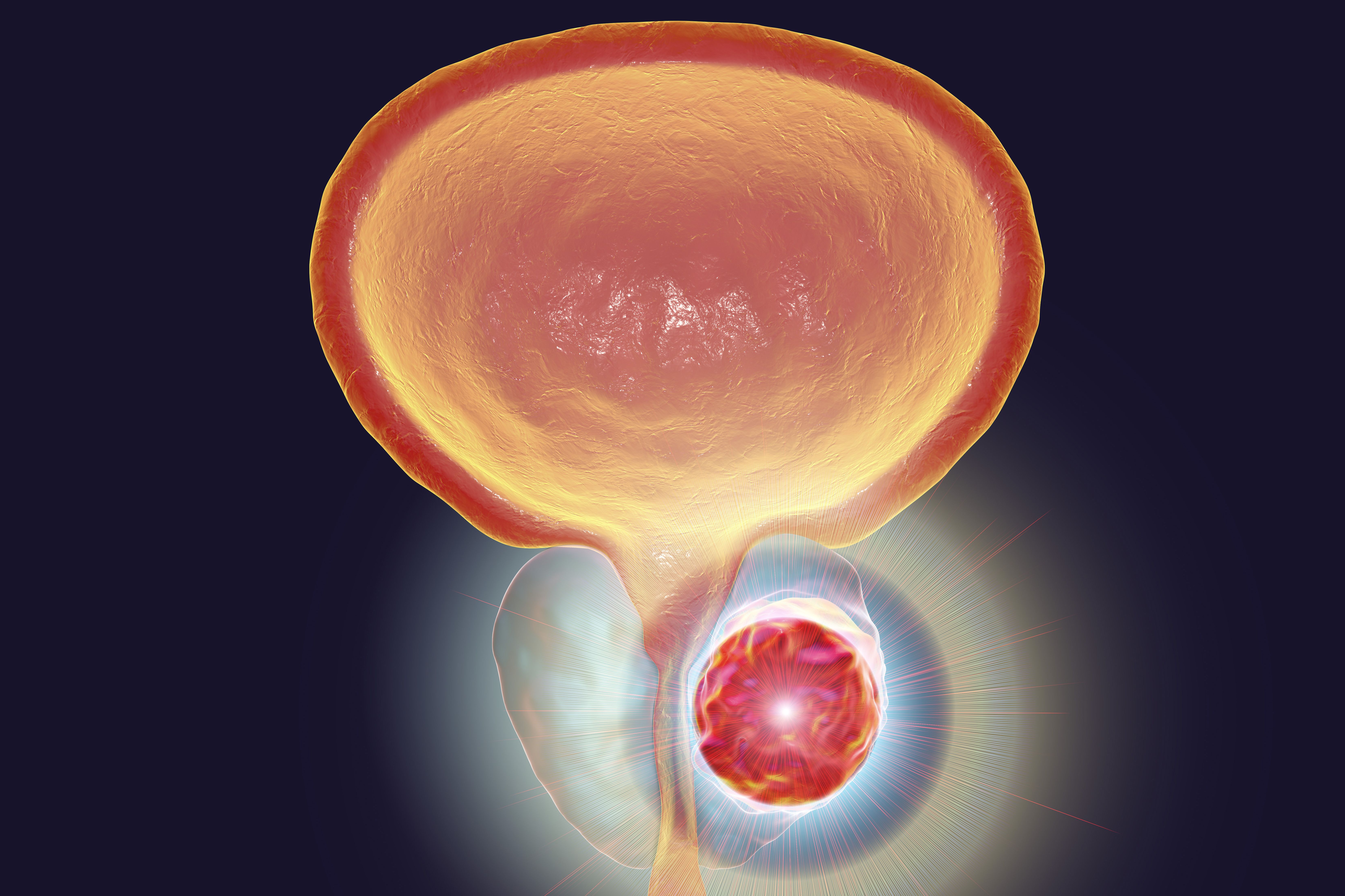
(Vienna, 21 October 2025) An international research team led by the Medical University of Vienna has demonstrated for the first time that thyroid hormone plays a key role in the development and progression of prostate cancer. By blocking a specific thyroid hormone receptor, cancer growth was inhibited in both animal models and tumour cell cultures. The study results, currently published in the top journal Molecular Cancer, thus provide a new approach for the treatment of prostate tumours, especially in a phase where current methods fail.
The research team led by Olaf Merkel, Brigitte Hantusch and Lukas Kenner (all from the Clinical Department of Pathology at MedUni Vienna) and first author Aleksandra Fesiuk (Department of Biomedical Imaging and Image-guided Therapy at MedUni Vienna) focused on the role of the thyroid hormone receptor TRβ (thyroid hormone receptor beta) in tumour development. In laboratory experiments, activation of the thyroid hormone triiodothyronine (T3) led to a sharp increase in prostate cancer cells. However, when TRβ was inhibited with NH-3, an active substance currently used only in research for the targeted blocking of TRβ, the growth of cancer cells decreased significantly.
This effect was confirmed in animal models: tumours treated with NH-3 remained smaller or developed significantly more slowly. NH-3 proved particularly effective in models of so-called castration-resistant prostate cancer – a form that continues to grow despite hormone deprivation therapy and is currently difficult to treat. Blocking TRβ also led to a loss of the androgen receptor signal, which is normally activated by male sex hormones and plays a central role in the progression of the disease. Data from patient cohorts support these findings: tissue samples showed increased levels of TRβ in prostate tumours compared to healthy tissue. Furthermore, genetic analyses show that mutations in many prostate cancer patients alter thyroid hormone signalling pathways.
Prostate cancer is the most common cancer among men in Austria. In its early stages, the disease is usually treated with hormone deprivation therapies that reduce the influence of testosterone. However, most patients develop resistance to these therapies. Effective treatment options are currently limited at this stage. The latest findings have identified a previously unknown mechanism that opens up new perspectives: "Our results suggest that TRβ is not only a driver of tumour growth, but could also serve as a potential target for new drugs," says study leader Lukas Kenner. The study found that combining NH-3 with established androgen receptor inhibitors was particularly interesting, as it showed increased efficacy in preclinical experiments.
Publication: Molecular Cancer
Thyroid Hormone Receptor Beta Signaling is a Targetable Driver of Prostate Cancer Growth.
Aleksandra Fesiuk, Daniel Pölöske, Elvin D. de Araujo, Geordon A. Frere, Timothy B. Wright, Gary Tin, Yasir S. Raouf, Olasunkanmi O. Olaoye, Ji Sung Park, Nicolas Blavet, Boris Tichý, Michaela Schledere1, Sandra Högler, Michael Wolf, Cécile Philippe, Osman Aksoy, Adam Varady, Alejandro Medaglia Mata, Maxim Varenicja, Boglárka Szabó, Theresa Weiss, Gabriel Wasinger, Torben Redmer, Heidi A. Neubauer, Martin Susani, Clemens P. Spielvogel, Jing Ning, Maik Dahlhoff, Martin Schepelmann, Richard Kennedy, Richard Moriggl, Geoffrey Brown, Jenny Persson, Christopher Gerner, Vojtech Bystry, Oldamur Hollóczki, David M. Heery, Patrick T. Gunning, Olaf Merkel#, Brigitte Hantusch#, and Lukas Kenner#.
https://molecular-cancer.biomedcentral.com/articles/10.1186/s12943-025-02451-2